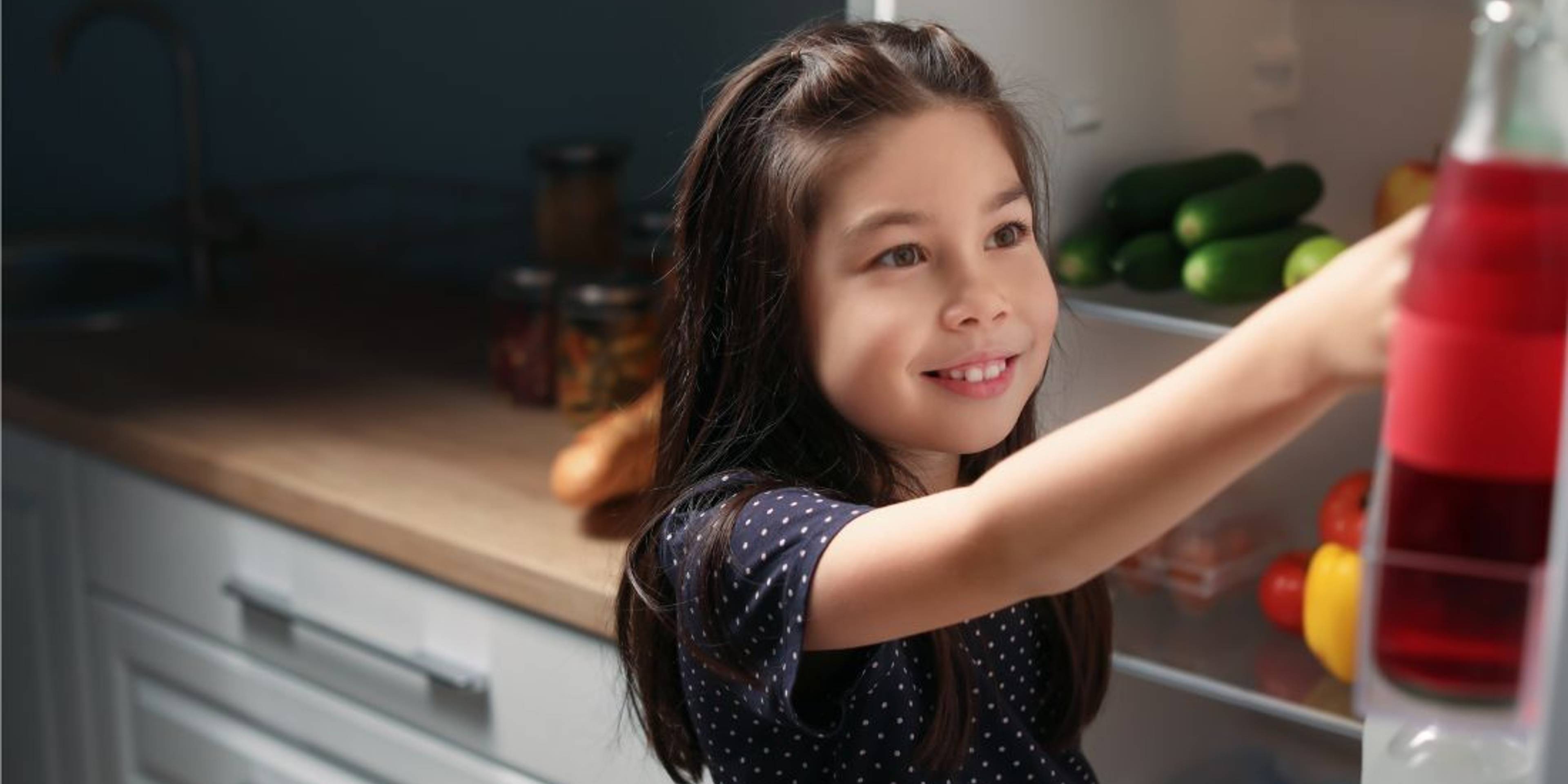September 05, 2022
How can I best support my son whilst my wife is going through treatment for breast cancer?

My wife suffers with health conditions and has been diagnosed with cancer. The chemotherapy is starting to become difficult for her and I am concerned about the impact this may have on my child’s learning at school. I am also concerned that my son doesn’t bottle things up and that we do all that we can to help him feel supported.
Thank you for your question. From the detail you supply in your email to me, it is crystal clear that this young man lives in a loving, warm and supportive family unit (perfect conditions to cultivate and sustain a child’s resilience). Your concern relates to the fact that your child is starting secondary school and that his mother’s treatment coincides with an important milestone in his life. I can understand why, at this particular time, you might worry a little more about this child than other children in the family.
Thank you for your question. From the detail you supply in your email to me, it is crystal clear that this young man lives in a loving, warm and supportive family unit (perfect conditions to cultivate and sustain a child’s resilience). Your concern relates to the fact that your child is starting secondary school and that his mother’s treatment coincides with an important milestone in his life. I can understand why, at this particular time, you might worry a little more about this child than other children in the family.
First of all, I think it’s important to recognise how emotionally resilient your lovely son already is. When we reflect upon how resilient a child is, we can consider things such as how they respond to new challenges (how did he get on at the recent school induction day or first week back, for example?), their own ‘rootedness’ in family life and attachment to caregivers (this sounds rock solid!), and their ability to adapt to change over time. Like all children, your son has lived through a pandemic and will have rapidly honed many of his coping skills over the last two years.
That said, this is time to focus on the family’s emotional literacy and to highlight existing coping mechanisms. It might be a good idea to initiate conversations with your children about your family’s coping skills generally, and with a sense of pride. Recent changes like the return to school or work provide good reasons to talk about how we handle change and how we navigate life’s ‘ups and downs’.
Rather than talking to your son directly about his mother’s health, you could kick start a conversation about coping and concomitant emotions, by linking it back to his school induction day. “I really loved seeing you enjoy that first week at school. How did you feel it went?”, “I really admire the way you just get stuck into new experiences. How do you do that?” Nudging your son to reflect on how he managed to do something that was tricky or challenging can boost his self-esteem and sense of personal resilience.
Widen the conversation out within family life when you get the chance. “Which coping skills do we have and use as a family that we could list?” Use our ‘Tooled Up’ Coping Menu as inspiration for your own. Young children might enjoy creating a list of family coping skills that you can stick on the fridge or family noticeboard. If mum is present during these family chats, you might ask her what the family can do to support her if/when she is feeling poorly.
Mum might have nice ideas that the children can implement, giving them a sense of agency and purpose, rather than helplessness. This is a good way of bringing up the topic of her health without a big serious chat about it that could feel scary. It’s also an opportunity to remind the children that there are certain things that you (as Dad) will be able to help Mum with (that they don’t need to worry about).
Never be afraid to ask your children if they are worried about anything and encourage all questions. If there is a vacuum of knowledge, children can be prone to imagining answers, but it sounds like you know this already. In your email, you reference the fact that “there have been no questions to date that we have been unable to answer”. Good for you. Your children already know that you welcome their questions and curiosity. Saying that, I would add that it is optimal for children to receive age-appropriate advice and that, generally, we let them take the lead. This means not over-sharing, gently observing if they seem upset or quiet and, crucially, creating talking time within family life.
If you are particularly worried about your son, proactively create “truth walks” where you go out together and are allowed to talk to each other about anything (not necessarily his mum’s condition, but about “boys’ stuff”). This is special father-son time that he should enjoy greatly. It might just entail a walk around the block on a Sunday afternoon for 30 minutes or a chat over a milkshake in the local café. Once your son knows that this time is his and his alone, he may well open up, over time, about any specific worries.
I completely understand why you are worried that he might be ‘bottling stuff up’ but, truth be told, he might be processing what is going on and may not know how he feels, so you might need to be patient. All you can do is set up the structures within family life where conversations are possible. Just being with him, hanging out and having fun, making him laugh, and ensuring that he does more of what he loves in his spare time, are all great investments in his resilience and happiness.
You might wish to pay attention to emotions within life more generally so that you can create a family culture even more conducive to opening up; talk about your feelings and use expressive emotional language to explain that feeling. If you are feeling a little down, consult the family ‘coping menu’ and model choosing an activity that makes you feel better or shifts your mood. Children often take their cues from their parents, so if your son sees you happy and relaxed, it is likely he will emulate that.
As your wife’s treatment progresses, it is a good idea to pre-empt situations where she may feel poorly and not be able to participate in family activities. You might choose to talk through things like ‘side effects’. Most children know that medicine helps us to get better but that some treatments can make people feel unwell before they get better. You might choose to discuss nausea, fatigue or that mum might lose her hair (if this is the case). You can explain that this doesn’t mean the illness is getting worse and that these symptoms will eventually go away, and hair will grow back, etc. There are many age-appropriate videos available that help explain both cancer and treatment to younger children.
Over the course of your wife’s treatment, there may be times when she wants a little peace and quiet. Brainstorming ‘ways we can help Mummy during the treatment period’ can help your children to feel purposeful and proactive. When it comes to talking about treatment, it’s good to emphasise its role in minimising, reducing or eliminating an illness in the body. It might also entail reminding them and consistently referring back to family affirmations such as, “Mummy is in the best hands, with the best doctors”. “Mummy is getting all the medical help she needs with a doctor she has confidence in”. “This treatment regime only lasts for X weeks”. It is important that these affirmations are co-created by the family and are appropriate for the given situation. Having things to look forward to as a family will keep all of you moving forward in a positive direction too.
Your original question was mainly about your son’s learning. Let me reassure you that your son will thrive academically if he is steeped in a positive home learning environment; a home where learning is important, homework completed, teachers respected, reading valued and where ‘family talk’ about the day (what went well, what was tricky, what are we grateful for) is part and parcel of family life. My advice to all parents at this time of year when children start secondary school is to help children practise being organised, help them to evaluate their week, monitor their own moods and enjoy making new friends as time goes on. The journey ahead is a great one and you should have confidence in your son, his abilities, his resilience and his capacity to cope. Tell him you are proud of him, equip him with the practical things he needs for the term ahead and, as a family, think of yourselves as a team.
Make sure that you, as one of the ‘team leaders’, have time for yourself built into the family schedule. It is important for you to hang out with and have fun with friends. This ‘time out’ may well help you to feel energised and better able to support your wife and the whole family during what may be a challenging experience.
Here are a few booklets and links on the theme of breast cancer that you may find useful reference points over the coming months:
Talking with Your Children about Breast Cancer
More Parenting Questions

Jun 23, 2025
There was an attempted abduction locally. How can I support my child?
It might not feel like it right now, but it’s worth knowing that stranger abductions of children are extremely rare. In the UK, there are around 500–600 reports of child abduction each year, but the vast majority are attempted rather than successful, and many are later reclassified as misunderstandings, rather than genuine abductions.

Jun 17, 2025
My daughter (aged 10) has broken up with a friend. How can I help her?
It is the hardest experience as a parent, watching our children muddle their way through friendships, knock backs, being included then excluded, invited to parties and then kept at bay. We have all been there and it can feel emotionally painful and sad.

Mar 20, 2025
Help! My five year old is wetting the bed at night. What can I do?
You're not alone! Nocturnal enuresis, or bedwetting, is common in young children. We've asked paediatrician, Dr Christine Riyad, for advice.

Mar 17, 2025
My 10 year old is experiencing big emotions. Do you have any advice?
We've asked Dr Sophie Nesbitt, Consultant Child Psychologist, for her top tips.

Feb 12, 2025
Is it ok for my four year old to still use a dummy?
It's completely natural to feel concerned when your child continues using a pacifier or sucking their thumb beyond the toddler years. We've asked paediatrician, Dr Christine Riyad, for advice.

Dec 31, 2024
My son wants to buy his girlfriend an 18th birthday present. Help!
Give yourself a pat on the back as your teen is asking YOU for advice. It is a sign that there is good communication between you, and that he sees you as a source of knowledge! I think his question is a wonderful one. Why? Because it shows he values the relationship, recognises the importance of a milestone birthday and knows that gift-buying is not a simple activity.

Dec 18, 2024
What do we need to consider when thinking about hiring a tutor?
Private tutoring can be a great way to support your child's education, but finding the right person can also feel overwhelming. The tutoring industry is largely unregulated in the UK and so it can be challenging to know where to start or what to look for.

Oct 22, 2024
My 11 year old daughter is always hungry. Should I be concerned?
This is a common concern for many parents. Engaged and attentive parents are generally mindful of their child’s relationship with food. This is not surprising given the shameful narrative surrounding the idea of being overweight or obese, and the association that is often made that this is linked to neglectful parenting.

Jun 03, 2024
How can I best support my son with changes to his class next year?
Firstly, it is normal to worry about changes that lie ahead for our children and to worry about their ability to cope. You aren’t alone. The start of a new academic year is always full of changes to school life. New classrooms perhaps? Timetables? Teachers, pupils, curricula, canteen menus? You sound like you are holding a lot of anticipatory anxiety about the changes that are forthcoming. These changes have likely been explained to you by the school, and perhaps you still feel fearful?

Apr 22, 2024
How can I support my teen through a break up?
Early teen romances can certainly feel exciting and exhilarating but most are also short-lived, and supporting our children through them is something we will likely have to do several times over the years to come. Here are some tips to help you to support your daughter.